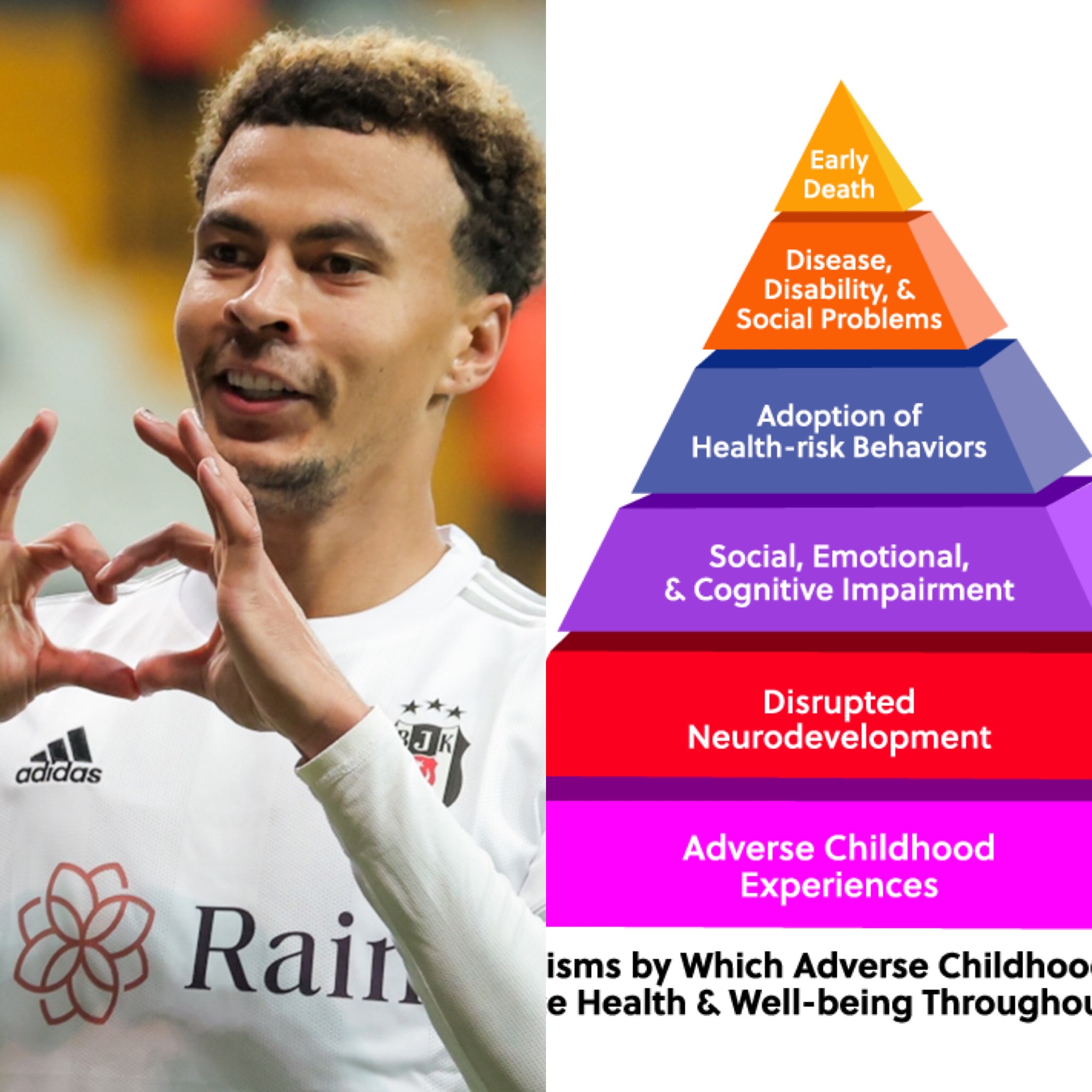am Mbonu
As a soccer journalist and mental health clinician with over 4 years of experience spanning 4 hospitals in Texas, I have come to understand the relationship between a healthy mind and success in any chosen field of human endeavor. Soccer players are not left out, after all, they are humans with emotions. Most may use their craft as a means of escape.
During a trauma-informed training class with Harris County Center for Mental Health and IDD, (trauma-informed care) it reminded us that most adults grew up with Child Based Trauma (CBT) and most resorted to a means of escape to deal with or distract themselves from that which has troubled them.
Psychological escapism refers to the act of seeking relief or distraction from one's everyday life, problems, or emotions through various psychological means. It involves engaging in activities or adopting mental strategies that allow individuals to detach themselves temporarily from reality or their own thoughts and emotions. Psychological escapism can take different forms depending on personal preferences and circumstances.
Playing soccer can serve as a means of escape for many individuals and in the case of Dele Alli, it is plausible that he used soccer to distract himself from his childhood trauma.
Did Dele Alli abuse substances as an adult? yes, he acknowledged that he was addicted to sleeping pills and heavy drinking. These are signs of untreated CBT which was taken into adulthood. According to https://www.MentalHealthCenter.Org, individuals may use drugs or alcohol as a coping mechanism to deal with unresolved issues.
It is important to note that while psychological escapism can offer temporary relief, it is not a substitute for addressing underlying issues or challenges in one's life. It is essential to maintain a healthy balance between escapism and actively addressing and resolving personal problems or difficulties to ensure long-term psychological well-being.
Childhood trauma has been recognized as a significant factor that can shape an individual's psychological well-being and ability to cope with stressors later in life. In the context of professional sports, such as soccer, the impact of childhood trauma on an athlete's career trajectory is an area of increasing interest. This article explores the relationship between childhood trauma and susceptibility to failure in a soccer career, shedding light on how traumatic experiences can influence an athlete's performance, resilience, and overall psychological health.
Understanding Childhood Trauma:
Childhood trauma refers to experiences of abuse, neglect, violence, or other adverse events that occur during the early stages of life. These traumatic experiences can have long-lasting effects on an individual's emotional, cognitive, and social development. Common forms of childhood trauma include physical, sexual, or emotional abuse, neglect, witnessing domestic violence, or experiencing significant losses or separations.
Impact on Psychological Health:
Childhood trauma can have a profound impact on an individual's psychological health, including the development of mental health conditions such as anxiety, depression, post-traumatic stress disorder (PTSD), and low self-esteem. These conditions can manifest as various challenges that may hinder an athlete's ability to perform to their full potential.
Performance Implications:
The effects of childhood trauma on an athlete's performance can be multifaceted. Traumatic experiences can disrupt an individual's ability to concentrate, regulate emotions, and cope with stress. These factors may contribute to decreased focus during training and matches, impaired decision-making abilities, and reduced self-confidence. Moreover, athletes who have experienced childhood trauma may struggle with maintaining healthy relationships with coaches, teammates, and fans, resulting in interpersonal difficulties that can further affect their performance and overall career trajectory.
Resilience and Coping Mechanisms:
According to MentalHealthcenter.Org, while childhood trauma can potentially hinder an athlete's success, it is important to acknowledge that individuals possess varying levels of resilience and coping mechanisms.
Some athletes may develop effective coping strategies that allow them to navigate the challenges associated with trauma, build resilience, and thrive in their soccer careers. Supportive environments, access to mental health resources, and strong social support systems play crucial roles in facilitating an athlete's ability to overcome adversity and resume their development.
Intervention and Support:
Recognizing the impact of childhood trauma on an athlete's career, sports organizations, coaches, and support staff should prioritize the provision of comprehensive mental health support services. Early identification and intervention, trauma-informed care, and access to qualified mental health professionals can significantly contribute to an athlete's well-being and ability to overcome the challenges associated with childhood trauma.
In conclusion, childhood trauma can exert a lasting influence on an athlete's psychological well-being, resilience, and performance in a soccer career. While trauma may pose significant challenges, it is crucial to adopt trauma-informed approaches that promote early intervention, support, and mental health services. By prioritizing the well-being of athletes and providing them with the necessary tools to address and overcome childhood trauma, sports organizations can foster an environment that encourages growth, resilience, and success on and off the soccer field.
References: Harris Center for Mental Health and IDD training class “Trauma-informed Care”
Zaraki, “How Childhood Trauma Affects Us as Adults- Healing the Heart” https://www.Mentalhealthcenter.org
Jasmine, Monfared, “ Childhood Trauma and its effect on Adulthood- Concept Professional Training”, https://www.concept.paloalto.edu




Comments
Queeneth Ebys
17, Jul 2023
This is in all honesty the best article I have read so far on Child based Trauma (CBT) . You write so well Sam . I hope to read more